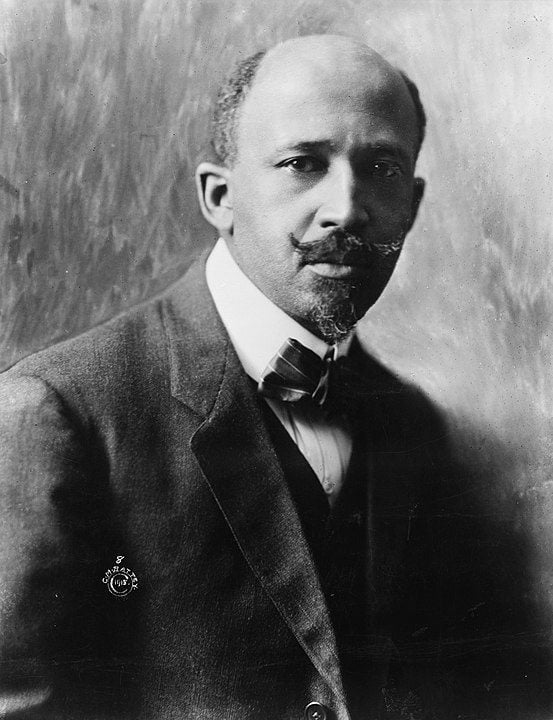Black Americans are the biggest casualties of today’s progressive education establishment. And it’s getting worse.
Progressive educators are now jettisoning honors programs, academic standards, and reading and math requirements, all of which are being said to promote “white supremacy.” As if black kids can’t be good students, can’t get good grades, can’t learn to read, and can’t do math.
It has gotten to the point that, as we blogged about (see this and this), new mathematics programs are saying that the goal of “getting the right answer” is white supremacist. Tell that to the black women featured in the true-life movie Hidden Figures who did the calculations for NASA in those pre-computer days that made the Mercury space program possible.
Many black parents are correctly recognizing these low expectations on the part of mostly white liberal educational theorists to be racist. They want their children to get a good education, but the public schools, having failed to provide it, are now saying that doing so is impossible. Black parents want an alternative. And they are finding it in classical education.
After all, classical education is built around the “liberal arts,” a term that refers not to a political position but to the Latin word for “freedom,” the same root that gives us “liberty” and “liberating.” This approach to education goes back to the ancient world and its two different educational paths: “servile” education, consisting solely of occupational training, was provided for slaves. But free citizens of the Greek democracies and the Roman republic were given a “liberal” education designed to equip them for freedom, political participation, leadership, civic virtues, logical analysis, effective communication, and creativity.
That distinction is why the radical early Black leader W. E. B. Du Bois opposed plans to give the freed slaves merely occupational training. He insisted that they needed liberal education, as provided by classical schools and colleges. They needed an education that would be liberating.
I came across two articles on how black Americans are rediscovering the relevance for them of classical education and are taking advantage of the new classical schools and homeschools.
In fact, even some white liberals are rediscovering classical education. The left-leaning Catholic magazine America has published an excellent article by Jeremy Tate entitled In Defense of a Classical Education. Read it all, but here is a sample:
For many, the mention of classical education evokes images of elitist New England boarding schools where for decades all-white graduating classes would matriculate to the Ivy League and go from there to control the levers of political and economic power. This image—classical education as a fine veneer to cover racial snobbery and entrenched power—has frequently dampened people’s enthusiasm for a 21st-century revival in classical education, or even provoked opposition to it.
But there is another story to tell. Visitors to Frederick Douglass’s home in the Anacostia neighborhood of Washington, D.C. discover a bust of Cicero in the parlor, and his autobiography includes a treatise on the influence of ancient philosophers. W. E. B. Du Bois casually drops allusions to Greek mythology and passages of medieval poetry into his discussion of the failures of Reconstruction. Anna Julia Cooper constructs her argument for Black women’s education with examples drawn from the history of classical Athens and the feminine luminaries of the Renaissance.
What is it that these bold activists saw in this tradition of culture and education to lay hold of? Were they wrong? I don’t believe they were.
It would be foolish to pretend that classical education has never been a pretext for arrogance and hypocrisy. But abandoning the tradition would still be a bad choice, even if there were nothing more to say about classical education than that. It is not just a coincidence that so many civil rights activists have had a classical background. This kind of education opens us up to the riches of our civilization, and inspires people to see both the higher values (including virtues like prudence and temperance) and possibilities of the world, and devote themselves to the hard, creative work of realizing those possibilities.
The elite boarding schools of both the United States and the United Kingdom, favored by those who could afford the very best education for their children that money could buy, employed a classical curriculum. If that is “elitist,” the solution is not to do away with it, but to extend this “elite” education to everybody else, to ordinary Americans of all races, economic levels, and walks of life.
The article goes on to show the impact of classical education on black activists and the civil rights movement, with in depth attention to Martin Luther King, Jr. I love this paragraph:
To dismiss classic literature as “dead white guys” does a great disservice not only to the books themselves (many of whose authors, like Dr. King or St. Augustine or Mary Shelley, were not white or guys), but to young people we are trying to educate. Everyone has a right to this material. The novelist Saul Bellow once asked “Who is the Tolstoy of the Zulus?” The journalist Ralph Wiley replied, “Tolstoy is the Tolstoy of the Zulus. Unless you find a profit in fencing off universal properties of mankind into exclusive tribal ownership.” Tolstoy is not the exclusive property of Russia: He is, in the old sense of the word, catholic.
“Tolstoy is the Tolstoy of the Zulus.” He belongs to all humanity, and he expresses a reality that all human beings–despite any differences of culture, time, or race–can share and learn from.
In fact, the truth that we are all members of a common humanity is exactly what we need to recover in order to combat racism and national polarization.
Classical education conveys that truth, as opposed to the contrary ideologies that teach that racial division is inevitable and that all of our diverse groups, instead of enhancing our humanity, are simply trying to oppress each other.
Next time: Black parents and their children who have gone classical.
Photo: W. E. B. Du Bois by Cornelius Marion Battey – This image is available from the United States Library of Congress's Prints and Photographs divisionunder the digital ID cph.3a53178. Public Domain, https://commons.wikimedia.org/w/index.php?curid=1657440














